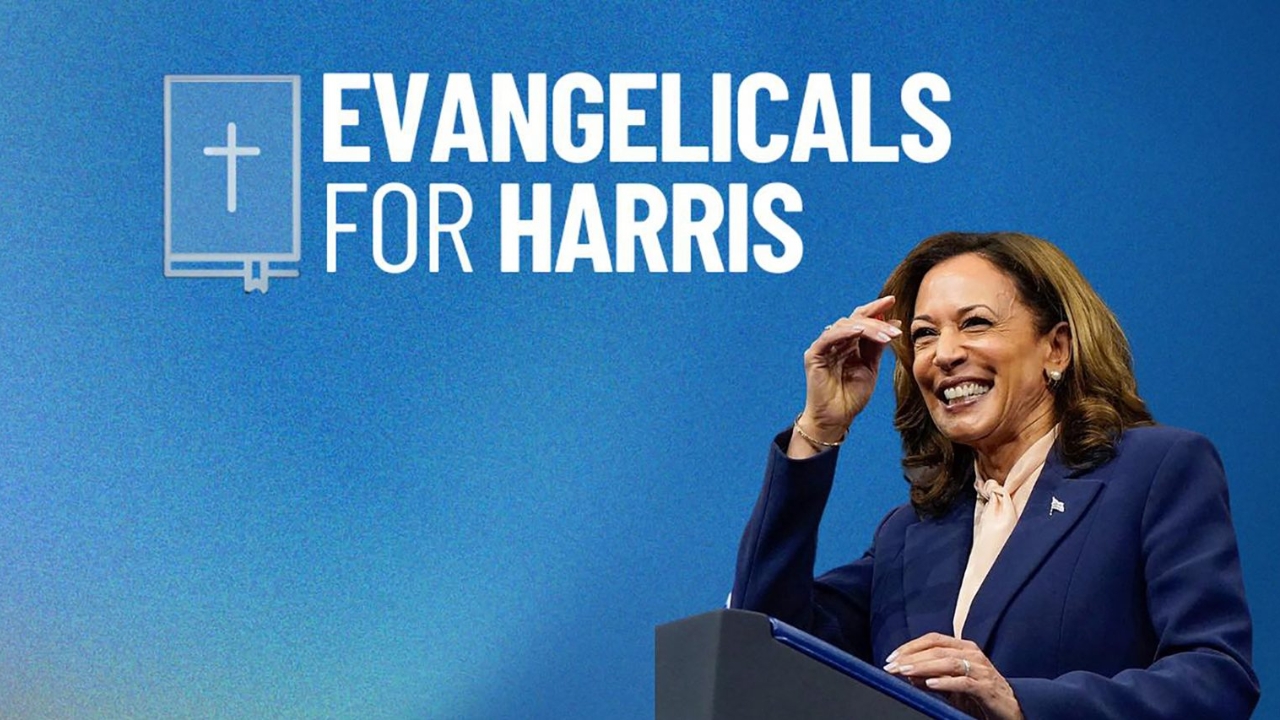Sounds like the similar observations made in the recently puiblished book 'Shepherds for Sale'.
JPM

Last week, I joined a Zoom call hosted by a group calling themselves "Evangelicals for Harris." For those who don’t know, this group aims to swing the votes of "on-the-fence" conservative evangelicals in swing states, and includes such figures as Rev Jim Ball, Jemar Tisby, Jerushah Duford (granddaughter of Bill Graham), Ekemini Uwan and Dwight McKissic. They’ve gathered over 200,000 ‘evangelical’ signatures so far pledging to vote for Harris in November.
As a Baptist pastor with a Doctorate in Religious Studies and over thirty years of experience studying the Bible, I was intrigued but ultimately troubled by what I witnessed. This organization, which purports to represent evangelical believers, left me seriously questioning whether they truly understand the term or believe anything that could remotely be considered evangelical at all.
1. Authority Of The Bible
One of the hallmarks of evangelicalism is the belief in the authority of the Bible. Yet during the meeting, while some speakers quoted scripture and led in singing, there was a notable absence of any affirmation that the Bible is their authoritative guide. This is a critical issue. As 2 Timothy 3:16-17 states, "All scripture is given by inspiration of God, and is profitable for doctrine, for reproof, for correction, for instruction in righteousness." Evangelicals who hold to the authority of the Bible should be cautious of a group that does not clearly affirm this belief, especially when they reference figures like Malcolm X, who did not view the Bible as authoritative. Furthermore, the lack of a belief statement on their website raises further doubts about their commitment to biblical authority.
As such, this group seems more concerned about appearing evangelical—or maybe about persuading evangelicals—rather than actually being evangelical in any meaningful sense.
2. Lack Of Transparency
Another concerning aspect of the group is its lack of transparency. During the call, there was no opportunity for attendees to ask questions, and many details about the organization remained hidden. For example, they revealed they have a million-dollar budget, partnerships with political figures like Stacey Abrams, and connections to the Democratic National Committee (DNC). Where has this money come from, especially considering that Harris was only made the Democratic Party’s nominee a few weeks ago? How and why does the DNC, with its strong pro-abortion stance, have this level of access to major ‘evangelical’ leaders. Have they as an organisation challenged the Democrats on any of these issues, and what has that looked like? This secrecy is unsettling.
As 1 John 4:1 warns, "Beloved, believe not every spirit, but try the spirits whether they are of God: because many false prophets are gone out into the world." A hallmark of cult-like behavior is the suppression of free thought and the lack of access to leadership for addressing concerns. Evangelicals should be wary of any group that operates in such a secretive manner.
3. Anti-White Racism
Perhaps the most alarming moment during the call was when one of the speakers made a sweeping generalization about "white evangelicals," accusing them of having "thin theology." Such a statement is not only offensive but also divisive. Millions of white evangelicals in America deeply care about theology and have a profound understanding of biblical teachings. It is concerning that this group would host someone who feels justified in making such a broad and negative statement about an entire demographic without challenge. I would hope that the Southern Baptist Convention leadership, from those like Brent Leatherwood at the ERLC to the SBC President Clint Presley, will publicly question why an SBC pastor like Dwight McKissic is involved with a group that explicitly condemns white evangelicals.
As Ephesians 2:14-15 reminds us, "For he is our peace, who hath made both one, and hath broken down the middle wall of partition between us." The gospel is about unity, not division along racial lines. Any evangelical should be deeply troubled by the failure to address and correct such harmful rhetoric.
4. Minimizing The Sanctity Of Life
Finally, this group downplay the importance of the sanctity of life. Whilst Trump cannot be considered a staunch pro-life advocate, his Supreme Court nominees were vital in overturning Roe vs Wade, allowing this decision to be made at the State level. In contrast to this, Harris has committed to overturning that decision, and abortion up to full term seems to be a key plank in the Democratic Party’s platform.
As arguably the most important issue for evangelicals, it was amazing that this was not seriously addressed on the call. One speaker mentioned that she was no longer a "one-issue voter," referring to abortion as just one of many issues.
However, the Bible is unequivocally pro-life, affirming the personhood of the unborn. Psalm 139:14 declares, "I will praise thee; for I am fearfully and wonderfully made: marvellous are thy works; and that my soul knoweth right well." Evangelicals for Harris, by encouraging support for a political figure like Vice President Kamala Harris clearly disregards this critical biblical truth.
Conclusion
Being evangelical means standing on the authority of Scripture, which is in direct conflict with the principles espoused by Evangelicals for Harris. We cannot support this movement as a result.